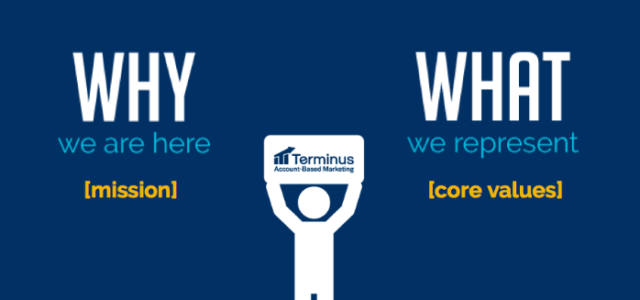Matt Alder, an expert on digital transformation for recruitment and author of ‘Exceptional Talent’ is host to one of the most successful recruitment podcasts; The Recruiting Future Podcast.
Here in episode 175 Matt’s guest is Dorothee El Khoury, HR Practice lead from strategic consultancy The Hackett Group. Dorothee has done a huge amount of work in an area dear to Matt’s heart and that is the importance of hiring and developing the right talent for digital transformation. In the interview Matt and Dorothee discuss:
- Methods used by The Hackett’s Group for identifying and monitoring trends
- Why Human Resources is central to Digital Transformation
- How structures, roles and responsibilities are changing
- The rise of recruitment marketing
- Automation and The future of work
- The rise of talent concierges and employer relationship managers
- People analytics
- The rate of digital technology adoption by HR and Recruiting functions
- Barriers to change and the danger of digital overload.
Listen here and read the full transcript below.
Matt Alder [00:01:09] Everyone. This is Matt Alder. Welcome to episode 175 of the Recruiting Future podcast. In my recent interview with Tom Goodwin in episode 172 of the show we both agreed that the importance of hiring and developing the right talent for digital transformation is not being discussed widely enough. This is a critical topic for me and I really want to explore it in more detail in the coming weeks. My guest on this week’s show is Dorothee El Khoury from strategic consultancy The Hackett Group. Dorothee is their HR practice lead and has done a huge amount of work benchmarking the structural changes HR and Recruiting have to go through to deliver the talent and skills required for digital transformation. Enjoy the interviewee. Hi Dorothee and welcome to the podcast. Could you just introduce yourself and tell us what you do.
Dorothee El Khoury [00:02:09] So I’m Dorothee El Khoury, I work with The Hackett Group I have now 25 years of professional experience and I lead the H.R. practice for Europe.
Matt Alder [00:02:22] Now could you, for those people who may not be overly familiar with the work that you guys do in The Hackett Group. Could you just give us a quick sort of overview of The Hackett Group
Dorothee El Khoury [00:02:33] Yes certainly so The Hackett Group is a strategic consultancy. We’re working for a broad range of companies globally and what we focus on is enabling and measuring performance and we’re very well known for our benchmarking capability. We also advise companies on how to transform their corporate functions.
Matt Alder [00:03:00] Now in our discussion today we’re going to be talking about H.R. and digital transformation which is obviously a very hot topic at the moment. I know you guys have sort of recently done some research and some reporting in this area. Could you just give us a kind of a bit of background to the research and the work you’ve done.
Dorothee El Khoury [00:03:20] Yes. So as part of our activities at Hackett, we survey and we also analyze the data in our benchmarking database to understand what are the leading practices and also what are those strategies that leading companies are taking and which differentiate them from competition on performance. So one of the studies we run every year is the Key Issues Study in which for each of the functions HR being one of them. We really ask C-level executives what their expectations are, the key risks, the key challenges and the key tactics and that’s how we know what the trends are going to be in a given year. And we also monitor the trends and look at what’s changing year on year.
Matt Alder[00:04:33] So I suppose the key question for me and lots of the H.R. professionals who listen to the show. How can H.R. support digital transformation within organizations?
Dorothee El Khoury [00:04:47] Well maybe the first thing to say is that you know with digital transformation never has H.R. been more challenged and never has it been as interesting to work in HR because the role and the expectations of the C-level towards the H.R. function are extremely high. And in this Key Issues studies that I mentioned a minute ago. What we find is in the last five years access to critical talent has been in the top five and now in the top three, number two in nineteen of the risks that CEOs see for their company. Number two risk just after cybersecurity. So the talent question is very high in the agenda and in the agenda because of digital transformation. So very very high expectation in terms of how H.R. needs to help in solving the talent issue. And the second thing to bear in mind is that H.R. functions are expected to bring this additional contribution to the strategic contribution whilst having flat headcount and flat budgets or even slightly reduced headcount and budgets. So there is also a contribution to company efficiency that is required from the function. So, high expectations and a function that is really central and critical to the success of the group digital transformation.
Matt Alder [00:06:44] I think that’s really interesting because you know obviously, this is something that H.R. and Recruiting you know need to be supporting if talent is that critical to the organization. But obviously, with the flat budgets and the digital transformation of their own kind of disciplines, there’s lots of change they’re going through themselves. So how are the structures, roles and responsibility of HR departments and teams changing as companies digitally transform?
Dorothee El Khoury [00:07:17] Overall, because they have flat budgets and flat headcount. The only way that HR can succeed is not by working more or buying more services. It’s about changing the way they work. And as you pointed out rightly it is about not only the methods and the approaches changing but it’s also about the roles evolving in HR. So we see that actually there’s new roles that are appearing some of the roles are disappearing and other roles are changing very strongly.
Dorothee El Khoury [00:08:04] So I probably can give you an example of how this works focussing on a very critical process for companies that is the talent acquisition. So recruitment that’s acquisition talent sourcing. You can name it in different ways. So the roles disappearing would be typically the traditional roles focussing on transactions or the administrative part of H.R. roles like for example sorting a CVs or recruiting transactions, answering very simple employee questions and those are disappearing because technology is is helping now deliver H.R. processes without needing any employee supporting for example for a very simple employee requests, self-service tools can be available. Chatbots can also do part of the communication with employees on simple topics, work certificates, copies of payslips, all of those activities can be pretty easily automated and even taking the example of the recruitment process some companies are automating in self-service the booking of an interview day directly between the business manager and the candidate without going through the recruitment team. And this used to be in my experience a very heavy task for the recruitment team just to coordinate these interviews. Now there’s also new roles appearing. An example of new roles appearing a new completely new set of activities that’s appearing in the recruitment process-, [inaudble] recruitment marketing. And this is about as companies want to target passive candidates so people who are not actively looking for a job but could consider moving jobs if they would be aware of an opportunity. So companies need to reach out to these candidates. They want to advertise their employer value proposition to this pool of potential candidates and therefore they need a special team who administers, develops their presence on social media, pushes content to a community of professionals of a certain domain that they are interested in attracting and also to get in touch and identify those profiles very simply from job boards or even a social media like LinkedIn for example. So completely new roles, some of which will come from HR, some of which could come from other functions. So in this case from the marketing function or even from the I.T. function to do all the technology support for this new activity. And the roles changing-, again with the recruitment process in the former recruiter roles a part of it can be gone – the administrative part. And what is remaining, you can see a specialization of the roles for example between profiles that we really focus on looking for the right talent pools. So searching, doing a research job to really understand globally where the talent could be, what sorts of candidates could be targeted, and others who will more focus on building a relationship and those building the relationship will probably not only do recruitment in the future they will take a more end to end approach and continue the relationship even though maybe the potential candidates are still not candidates or even as they have onboard in the company and are in the first steps over of their career to make sure that integration is working well and they’re happy at work. So. So there’s a lot-, there’s really a lot changing and you know Hackett looking at the H.R. function we really expect nearly-, I gave an example around the recruitment activity but there is probably not any area of H.R. that is that is going to be unchanged with digital.
Matt Alder [00:13:20] I think that’s really interesting and I think that I’m you know that balance between what’s going to be automated and what’s going to be done by humans is quite interesting. It’s just-, so you kind of mentioned that the idea that you know someone who’s building a relationship with someone during a recruitment process could sort of you know continue on that relationship through onboarding and you know helping them with their success in the business. Is that what you see the sort of role of humans within H.R. sort of doing moving forward? Is it a case that you know the administrative stuff is going to be kind of automated and the, you know, data humans are focussing on that kind of relationships piece which you sort of view on that?
Dorothee El Khoury [00:14:07] There will certainly be part of the H.R. function which will need to focus on-, so the relationship and and also very strongly on the customer experience, the customer for H.R. being three kinds of customer: there’s the candidates so people outside of the company that the company may want to attract and hire at some point, the employee, so working in the company on different roles and also the management of the company. So the hiring managers but also the operations managers who need support in the people and their people management tasks and more and more H.R. functions in the service that they’re delivering to candidates and also inside their organization. We need to adapt to their internal customers as you would adapt to tech consumer. And customizing as you would do with an external customer. Customizing the service to the needs of the segment of the population that they’re managing. Understanding their expectations. Innovating to bring them a better experience and as part of these new roles actually, we see some companies creating employee relationship managers so a person specifically having the ownership and the responsibility of this side of the job so making the employee happy and the candidates and the managers as well. So. That part is definitely going to grow so you know the simplistic view. Because we’re automating we’re all going to become robots and the human side of things is going to disappear! This is completely wrong. Actually, even without outside H.R. sorry as digital transformation progresses the problem-solving skills, the communication skills are actually becoming more and more important for those activities that are not being automated.
Matt Alder [00:16:46] So ‘data analytics’ seems to be a very big topic, trend at the moment. What role will analytics play in the future as all of this develops?
Dorothee El Khoury [00:17:01] In fact like for most functions in the company, data will be part of everything people do. So every activity, every process will have its data analysis parts. So back to recruiting because companies will want to target the right talents and there will be an intensified talent or knowing where the potential skills that the company needs are located will be critical and to do this you need to be able to analyze external information to find where the profiles might be. This is also true internally. If you take the H.R. systems currently there is very limited information. There is certainly not enough information for HR to be able to identify their own talent from their own company because you would have limited information, you would have the degree of the person and maybe the skills that they’ve used since they joined the company. But how about the other skills that they have that they may use in their personal lives if they work for a non-profit organization or some other activities. And how about the other skills that they had before they joined quite probably this would certainly not be in the HR system and though-, and what are their aspirations as well because you would have nothing about an employee’s aspiration or nothing usable. So companies will also need to really get smart at collecting this information in a way that is compliant with the new privacy policy regulation. But think about you know really capturing information and analyzing this information real time. So so really the world is going to change and it is going to be a differentiator between different companies competing with each other, to be able to capture the right data, analyze the right data, and insert this data-driven decision-making process within their ways of working.
Matt Alder [00:19:31] So final question. Obviously, a big part of digital transformation and change within H.R. is the adoption of new technology. What’s your view on the current rate of adoption of digital technology within H.R? You know what’s kind of holding people back and is this-, how might this change in the future.
Dorothee El Khoury [00:19:57] So in our research we find that some technologies have become like the use of social media have been adopted by a majority of companies. Others are not quite adopted by the majority but there are very ambitious plans to develop so the use of artificial intelligence which you already mentioned but also robotics and chatbots and others, companies are still wondering how to use them really would be the case for example in H.R. with a blockchain. What we see is slowing down the change in adopting new technologies and in enabling the function digitally. I guess there’s probably two big show stoppers. The first one is complexity because when you consider technology, there is often in a company and it’s not the case in the private sphere at all so that’s a big difference. Large corporates they have implemented systems for years so their IoT landscape looks like you know a series of layers of technology. And whenever a company wants to introduce a new technology there’s always this complexity of how is this going to integrate our landscape? How’s the data going to be exchanged or not with other applications. So that’s always something that is not easy for companies to manage and the older the company, the more complex the issue. So that’s a constraint, sort of technical constraint, that companies often have. And the other one, and it’s not really intuitive, but we find that what drive is-, what drives the pace of change is not the pace at which technology develops. What drives the pace of adoption is whether the people, so, the employees and the managers are willing to use the technology and are willing to change the way they work to use the technology. And a mistake that some companies do is they think that because this application is very customer friendly, very user friendly, very easy to use, very simple it will be adopted instantly and they have bad surprises because if you use a new application and new technology it means that you’re working differently but you’re doing different activities that you’re saving time for things that you used to do in the past but also you need to use information differently etc.. And this doesn’t go as fast as you would think. And when companies adopt the new tools be they cloud-based or on premise. One thing we always recommend them is to put the exact same amount of change management and explanation around what are the tools are going to help you do differently to the users, and not to think that because it’s user friendly it’s digital and everyone wants to go digital is going to be adopted immediately and without any effort. So, complexity and culture and maybe one last thing for our H.R. professionals listening to bear in mind is-, And with digital transformation, there’s no sort of digital overload of people. So one hundred and ninety-nine is the number of unread e-mails that is on average in every professional’s inbox. So that’s massive. The time that you take that a person takes to read a web page on average is four seconds. So you know beyond four seconds they move to the next one. So there’s a very big constraint in and there’s a very big need of being smart to avoid this overload in the way you communicate to your stakeholders and your internal customers. Because if you don’t bear this in mind then you may not be able to do what you are trying to do with your employees and your managers.
Matt Alder [00:24:53] Dorothee thank you very much for talking to me.
Dorothee El Khoury [00:24:56] You’re welcome. My pleasure.
Matt Alder [00:24:58] My thanks to Dorothee El Khoury.
You can subscribe to this podcast in Apple podcasts or via your podcasting app of choice. The show also has its own dedicated app which you could find by searching for Recruiting Future in your app store. If you’re a Spotify user you can also find the show there. You could find all the past episodes at www.rfpodcast.com, on that site you can subscribe to the mailing list, and find out more about working with me. Thanks so much for listening. I’ll be back next week. And I hope you’ll join me.
Article by channel:
Everything you need to know about Digital Transformation
The best articles, news and events direct to your inbox
Read more articles tagged: Featured, HR, Leadership, Talent






